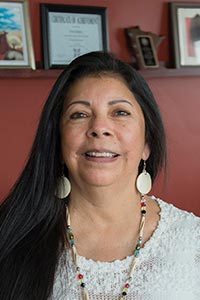
The Cambridge English Dictionary explains for us what is Indigenous as: “naturally existing in a place or country rather than arriving from another place.”
The U.S. English Dictionary by Oxford says: “originating or occurring naturally in a particular place; native.”
Some of the first references connected to Indigenous Studies were American Indian Studies and later Native American Studies (1960-1970), thereafter the term Indigenous Studies started to have far-reaching use. Thus, we will find that, nationally, the term Indigenous is referenced in most colleges and universities, including tribal colleges.
The academic discipline of Indigenous Studies in the United States has received growing interest around the world, yet most faculty at these universities face challenges such as affordability of faculty salaries, recruitment, retention and a certain number of students and graduation rates. Some of these challenges have been met with obtaining scholarships, special programs and certificates, as well as culturally responsive communications between the university leadership and the tribal governments from area reservations in order to obtain direct student recruitment.
Jean O’Brien, professor at the University of Minnesota, says “We have gone through our ups and downs at the university, there has been times when funding has been really short and the department threatened with being collapsed or eliminated.
“Basically, it happens every time there is a budget crunch, the universities looks for places to cut, they look at ethnic studies units, gender studies those kinds of programs that they think are not essential, so we have to fight for our existence.”
According to various data, there are about 1,400 universities and colleges in the United States, both public and private. Of those, 156 are currently offering 260 programs related to this subject either as course training or specialization within Ethnic Studies or Race and Ethnic Studies (this number does not include tribal colleges and universities). Even with the challenges found with sustaining an Indigenous Studies program, the competition to keep students from attending other colleges and universities who offer this discipline is very real.
What we know about the Indigenous Studies program at BSU in relationship to other programs nationally is that they involve a wide variety of academic programs and orientations. Most universities intend to provide academic backgrounds for professions such as education, management/business, research, etc., and the type of programs offered and their focus are very diverse.
Typically, universities with strong Indigenous Studies departments offer minor degrees, major degrees at the bachelor’s level, as well as master’s degree and doctoral programs. There are very few universities (24 out of 148) that offer a specific “nation’s studies” such as we find at BSU with our Ojibwe focus as noted by scholar Claudia Salomon Tarquini in 2017.
April Lindala at Northern Michigan University describes the strengths of Indigenous Studies this way: “If you want to truly understand how diversity can enrich thought, then you have to understand how (to listen to) Indigenous ways of knowing, and believing, and how connecting can (help one) contribute to that.”
What is known is that the field of Indigenous Studies in the U.S. is constantly growing, especially in specific geographical areas and communities with large Indigenous populations. We will find that Indigenous leaders are frequently asked to contribute their knowledge in environmental sustainability, climate change and global “peace” crisis. We also know these human problems will not go away without attention. Let’s do our part and support the efforts of our Indigenous faculty and staff and BSU and help them lead the way.
Vivian Delgado is a professor of Native American studies at Bemidji State University.
